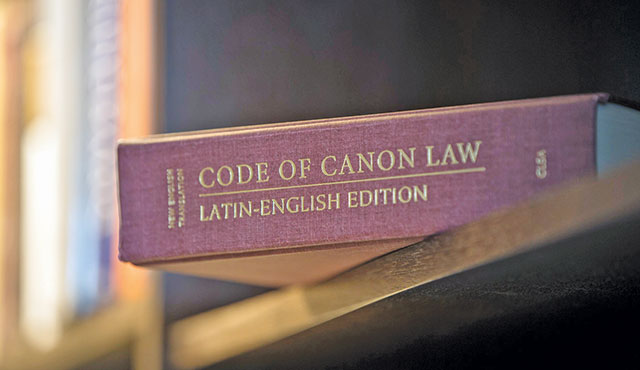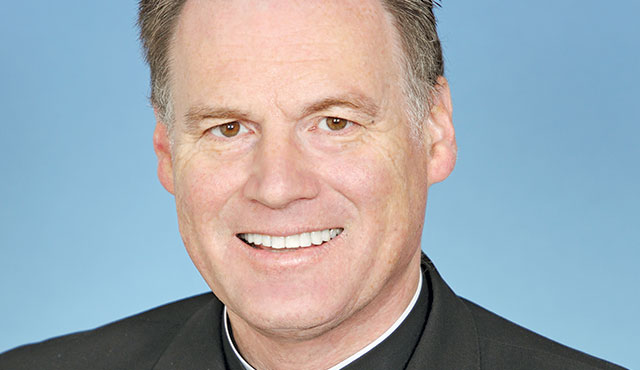The word “dispensation” can have varied meanings. One definition of dispensation is “the relaxation of a merely ecclesiastical law in a particular case” according to canon 85 of the 1983 Code of Canon Law. The dispensation question is often raised when St. Patrick’s Day, which always takes place during Lent, falls on a Friday. Since abstinence from meat on Fridays (outside of when a solemnity falls on a Friday) (canon 1251) is an ecclesiastical (Church) and not a divine law, a bishop or another with executive authority may relax the law in such a case. He could add the contingency that if one decides to have corned beef on Friday, March 17, he is to refrain from meat on another day.
When the seriousness of the coronavirus became known, it seemed fitting to excuse certain people who could be at high risk of contracting COVID-19 from being physically present at Mass. But it is important to point out a distinction perhaps not evident to everyone. It is the Third Commandment of the Decalogue that requires us to keep holy the Lord’s Day. Canon 1247 states that “on Sundays and other holy days of obligation, the faithful are obliged to participate in Mass.” It is the Church, then, that tells us how to keep holy the Lord’s day (Sunday). I might add that the same canon states that the faithful “are to abstain from those works and affairs which hinder the worship to be rendered to God, the joy proper to the Lord’s day, or the suitable relaxation of mind and body.” Therefore, how to keep holy the day of the Lord is prescribed by the Church, and, as a result, competent ecclesiastical authority may dispense from the requirement in certain cases, according to the good judgment of the same authority. This is why the faithful were instructed that, if attending Mass in person was not advisable in their particular situation, they could pray the Rosary, read Scripture for 30 minutes, watch the Mass on television or via live-streaming, and the like.
With the subsiding of the coronavirus threat and high vaccination rates in Orange County, people should now feel safe returning to Holy Mass in person. The need for a general dispensation has come to an end, and, effective June 12, 2021, it will no longer be in effect. That being said, it is understood that no one is held to the impossible. Someone who is unable to get out of bed, for example, is not expected to be physically present at Mass. Such a one would in no way commit a sin by absenting him or herself from being present at Holy Mass. Likewise, someone who is sick might even have the obligation to stay away from Mass on a Sunday or Holy Day of Obligation.
What if someone has a significant fear or anxiety of becoming ill by being at Mass, for example, those who for good reason have not received the COVID vaccine? Such persons should speak to their pastor, who may grant a dispensation in individual cases per canon 1245 of the Code of Canon Law. Such a one is still held to keep holy the Lord’s day in other ways, of course.
“The Supreme Law is the salvation of souls,” according to canon 1752. The Church does not want to be too onerous in its approach nor too lax. May everything we do be directed towards our eternal salvation and that of others.


